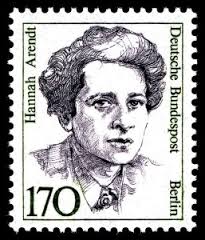Azione e “buona volontà” in Hannah Arendt
(Action and “Good Will” in Hannah Arendt)
DOI:
https://doi.org/10.13135/2038-6788/9825Keywords:
Agency, Augustine, Action, Christianity, Hannah Arendt, Kafka, Freedom, Miracle, WillAbstract
Hannah Arendt’s reflections on acting were inspired by the Christian tradition and Roman and medieval thought; sometimes they developed in opposition to modern positions and in contrast with contemporary scholars. In this essay, I propose to follow Arendt’s sources with respect to the problem of the will which, although distinct from knowing, has often been called into question as autonomous faculty because preference was given to the conflict with desires and emotions. In a peculiar dialogue with some major classics of the literary tradition (Kafka), Arendt proposes the notion of “good will” understood as political freedom that hints to the plurality of the public sphere. The will is free in the real perspective of the move to action according to consciousness, that is, in the name of individual responsibility.


